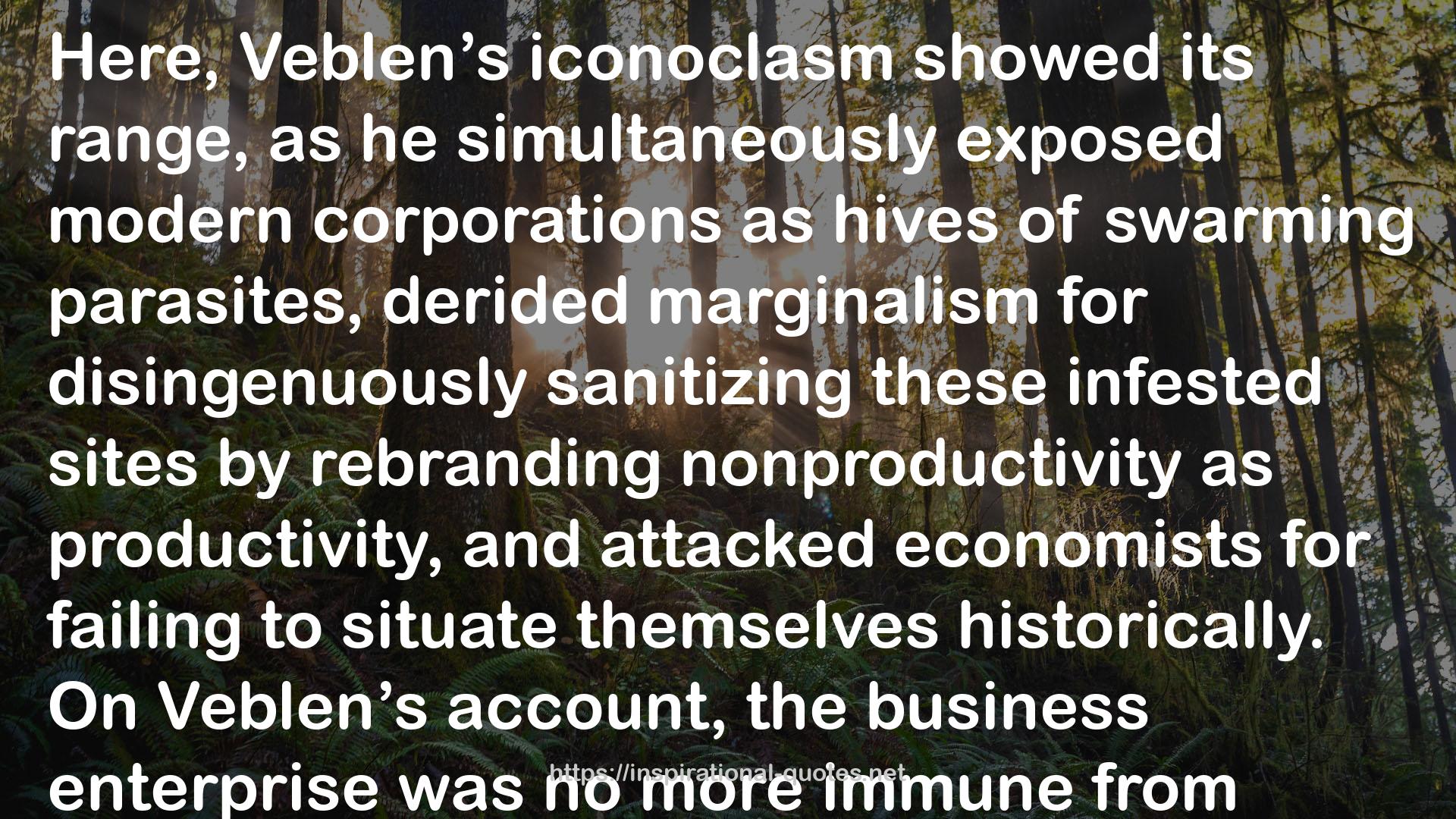Veblen: The Making of an Economist Who Unmade Economics QUOTES
SOME WORKS
- Carl Melcher Goes to Vietnam
- Habits of the Household: Practicing the Story of God in Everyday Family Rhythms
- Boogiepop Doesn't Laugh Vol 1
- Boogiepop Returns: vs. Imaginator Part 1: vs. Imaginator Part 1
- Boogiepop at Dawn (Boogiepop)
- Boogiepop Dual: Loser's Circus, Volume 2
- The Midsummer Captives (Firethorn Chronicles #2)
- Judge This
- How I Lost You
- Allerleirauh

